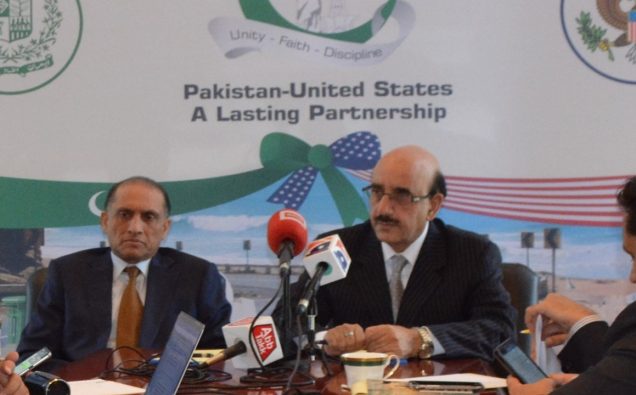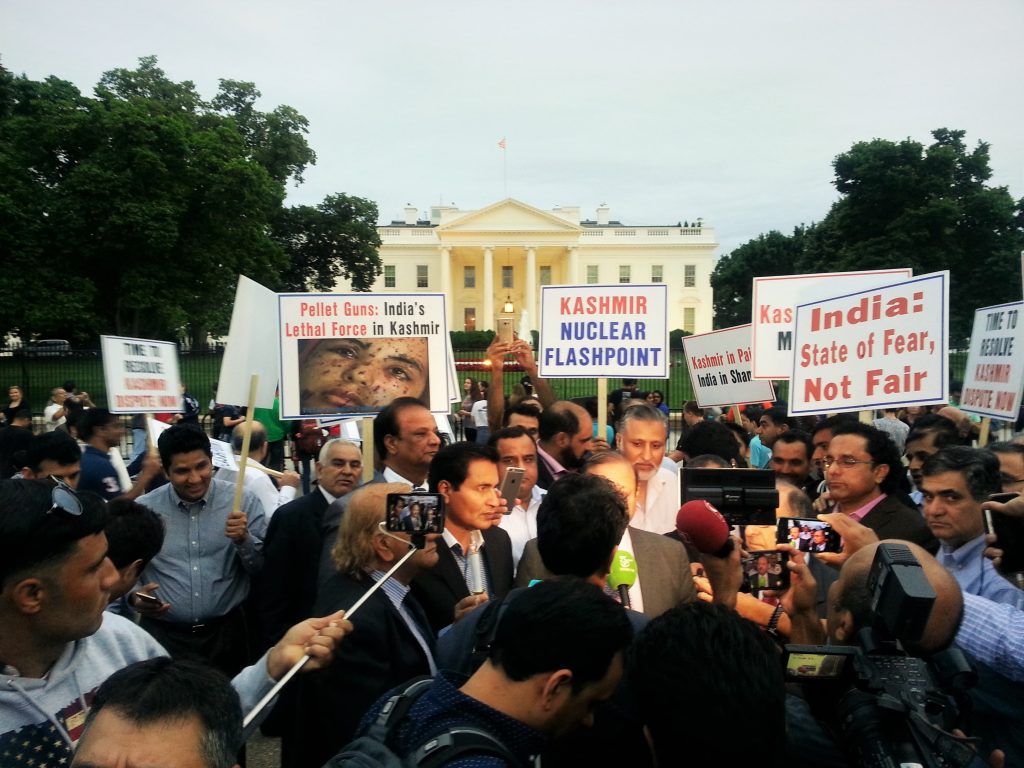
President of Pakistan-administered Kashmir Masood Khan, who is visiting Washington D.C., Wednesday called for a U.S. push toward a resolution of the humanitarian catastrophe and the longstanding dispute – that has kept Pakistan and India in a permanent state of war for seven decades.
Khan, the leader of Azad (free) Jammu and Kashmir, appreciated that Washington had in the past tried to help find a resolution to the lingering conflict.
Therefore, he said, “we pin our hopes on Washington to help us move the Kashmir issue towards a diplomatic and political solution.”
“If a chronic conflict like North Korea can see a breakthrough, so can Kashmir,” he remarked.
Khan made advocated that aspirations of the people of Jammu and Kashmir for a just, democratic and lasting solution must be respected.
Khan spoke to American and Pakistani media representatives as the Indian-controlled Kashmir faced widespread protests against New Delhi’s repression. Only last week, a professor and several other people lost their lives to violence, often blamed on Indian security forces, and militants seeking freedom from the Indian rule.

A file photo shows Kashmiris holding candlelight vigil outside White House to demand freedom from Indian occupation
During his interaction with the media, Khan condemned the “continuing use of brutal and indiscriminate force by the Indian occupation forces resulting in killing and maiming of Kashmiris in the Indian Occupied Kashmir (IOK).”
He said during the latest wave of atrocities, 14 people were killed in the last four days.
President Khan drew attention to a pattern in these atrocities, saying the Indian security forces deliberately targeted young innocent and unarmed Kashmiris staging peaceful protest for their right to self-determination.
He argued that in the face of the international focus and ground realities, New Delhi can no longer mislead the world community, by painting the “just, legitimate and indigenous Kashmiri struggle for self-determination as “terrorism.”
“If there is any element of terrorism in Kashmir, it is the Indian state terrorism,” he said
Khan noted that the Kashmiris have been heartened by the U.S. engagement with North Korea and the possibility of rapprochement on the Korean Peninsula and the importance of Pakistan-India dialogue and international diplomacy for resolution of the longstanding issue of Jammu and Kashmir.


















